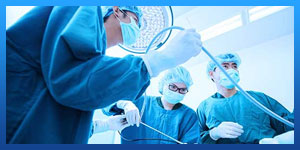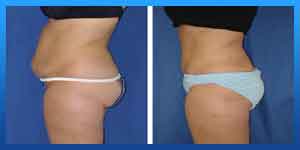Is liposuction safe and effective?

Is liposuction safe and effective?
Is liposuction safe for seniors?
What are the risks of liposuction?
What are the chances of dying from liposuction?
liposuction side effects
Liposuction is an elective cosmetic procedure that has major risks. It’s not a substitute for weight loss, and not everyone is a good candidate for it. Make sure you meet with a board-certified plastic surgeon and discuss the potential complications and risks before the surgery.

Read more about : Which is safer, liposuction or lipomatic?
Read more about : The German patient saved $ 14,000 by choosing Iran over Germany to have liposuction and abdominoplasty surgery.
Read more about : Liposuction surgery in Iran at HIGH quality hospital
Read more about : Liposuction Podcast with Dr. Afshan shah
Read more about : Liposuction and tummy tuck , before and after surgery videos
Read more about : Lipomatic surgery , before and after surgery Video
Risks and Side effects of Liposuction
Possible complications specific to liposuction include:
. Contour irregularities. Your skin may appear bumpy, wavy or withered due to uneven fat removal, poor skin elasticity and unusual healing. These changes may be permanent. Damage beneath the skin from the thin tube (cannula) that’s used during liposuction may give the skin a permanent spotted appearance.
. Fluid accumulation. Temporary pockets of fluid (seromas) can form under the skin. This fluid may need to be drained with a needle.
. Numbness. You may feel temporary or permanent numbness in the affected area. Temporary nerve irritation also is possible.
. Infection. Skin infections are rare but possible. A severe skin infection may be life-threatening.
. Internal puncture. Rarely, a cannula that penetrates too deeply may puncture an internal organ. This may require emergency surgical repair.
. Fat embolism. Pieces of loosened fat may break away and become trapped in a blood vessel and gather in the lungs or travel to the brain. A fat embolism is a medical emergency.
. Kidney and heart problems. Shifts in fluid levels as fluids are being injected and suctioned out can cause potentially life-threatening kidney, heart and lung problems.
Read more about : Heart Attack
. Lidocaine toxicity. Lidocaine is an anesthetic often administered with fluids injected during liposuction to help manage pain. Although generally safe, in rare circumstances, lidocaine toxicity can occur, causing serious heart and central nervous system problems.
. Irritation and minor scarring around the incisions are also temporary side effects of the surgery. Avoid rubbing the incisions.
. More serious threats include permanent change in skin colour and damage to nerves and skin. However, these are extremely rare and if a qualified surgeon is chosen to perform the procedure, safe results will follow.
The risk of complications increases if the surgeon is working on larger surfaces of your body or doing multiple procedures during the same operation. Talk to your surgeon about how these risks apply to you.

Read more about : How to massage lumps after liposuction?
Read more about : Does fat transfer work for breast augmentation?
Read more about : Liposuction results week by week
Read more about : Maximum weight for liposuction
Read more about : How to get rid of fluid after liposuction?
Read more about : Does liposuction hurt?
Read more about : Lipomatic
What are the Risks and Side effects of liposuction?
Liposuction is a serious surgery with multiple risks. It’s important to discuss all the risks of liposuction surgery with your doctor before having the procedure.
Risks during surgery
The risks during surgery include:
. Puncture wounds or injuries to other organs
. Anesthesia complications
. Burns from equipment, such as ultrasound probes
. Nerve damage
. Shock
. Death
Risks immediately after the procedure
The risks after the procedure include:
. Blood clot in the lungs
. Too much fluid in the lungs
. Fat clots
. Infections
. Hematoma (bleeding under the skin)
. Seroma (fluid leaking under the skin)
. Edema (swelling)
. Skin necrosis (the death of skin cells)
. Reactions to anesthesia and other medications
. Heart and kidney problems
. Death
Risks during recovery
The risks during recovery include:
. Problems with the shape or contours of the body
. Wavy, dimpled, or bumpy skin
. Numbness, bruising, pain, swelling, and soreness
. Infections
. Fluid imbalances
. Scars
. Changes in skin sensation and feeling
. Skin color changes
. Problems with healing
Long-term side effects of liposuction
The long-term side effects of liposuction can vary. Liposuction permanently removes fat cells from the targeted areas of the body. So, if you gain weight, the fat will still be stored in different parts of the body. The new fat can appear deeper under the skin, and it can be dangerous if it grows around the liver or heart.
Some people experience permanent nerve damage and changes to skin sensation. Others may develop depressions or indentations in the areas that were suctioned, or may have bumpy or wavy skin that doesn’t go away.
Read more about : liposuction long-term side effect
Read more about : what causes rippling after liposuction?
Read more about : Nerve pain after liposuction
Read more about : Bbl in Iran
Read more about : Liposuction in Iran
Read more about : Fever after tummy tuck
Read more about : Pain after liposuction flanks
Read more about : Lipomatic vs liposuction
- Liposuction
- Liposuction in Iran
- Liposuction cost in Iran
- Lipomatic in Iran
- Vaser Liposuction in Iran
- Before Liposuction in Iran
- Liposuction Before and After
- Liposuction Recovery
- Risks of Liposuction
- How dangerous is Liposuction
- Long-term effects of Liposuction
- After Liposuction surgery in Iran immediately
- During Liposuction surgery in Iran
- Who is not right candidate for Liposuction surgery?
- Ideal BMI for Liposuction
- Can Liposuction and tummy tuck be done together?
- How much fat can Liposuction remove
- Fat transfer in Iran
- Full Body Liposuction in Iran
- Mega Liposuction in Iran
- 10 Important things you should know before Liposuction
- Lipo laser in Iran
- 12 Important things about Liposuction
- Liposuction pain management
- Plastic surgery in Iran
- Rhinoplasty
- Face lift
- Facial plastic surgery
- Lip augmentation
- Ear pinning
- Blepharoplasty
- Neck lift surgery
- Chin lift surgery
- Liposuction
- Abdominoplasty (tummy tuck)
- Body sculpting
- Arm Lift
- Brazilian Butt Lift
- Breast Augmentation
- Breast Lift
- Breast implant
- male breast reduction ( gynecomastia )
- sex reassignment surgery ( sex change )
- Vaginoplasty
- labiaplasty
- Hair transplant for male
- Female hair transplant
- Reconstructive surgery
- Septoplasty
- Breast reconstruction
- Breast reduction
- Cleft lip and palate repair

